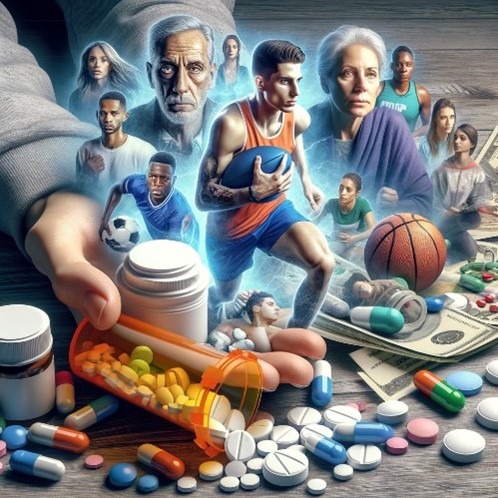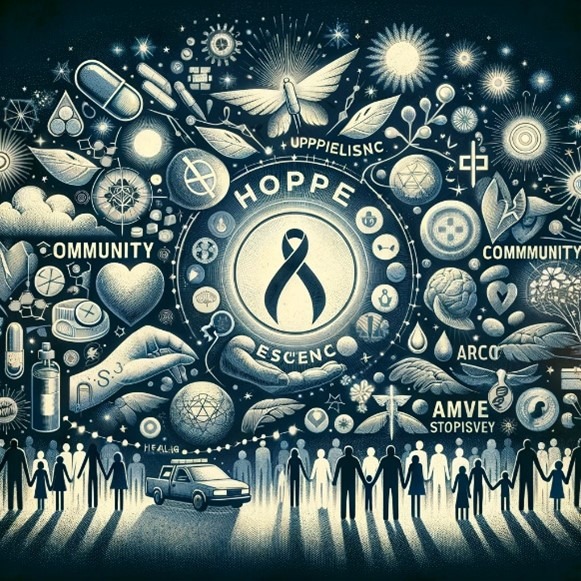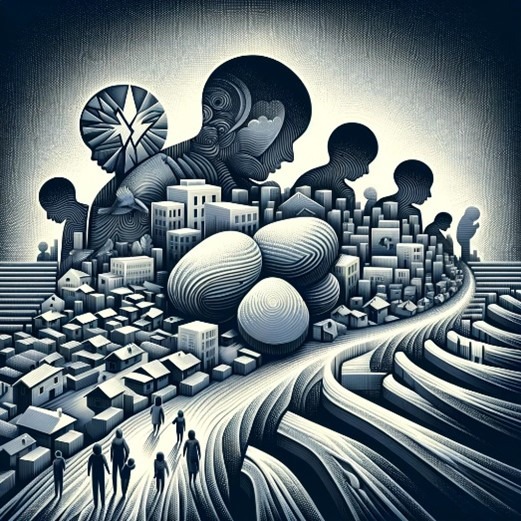The Opioid Crisis

So, what is the opioid crisis? In simple terms, it's a surge in the use and misuse of opioids, including prescription painkillers, heroin, and synthetic opioids like fentanyl. This epidemic has led to a dramatic increase in opioid-related overdoses and deaths.
How Did We Get Here Into This Opoid Crisis?
The roots of this crisis go back to the late 1990s when opioids began to be prescribed more frequently for pain relief. The problem? These medications were highly addictive. Many people didn't realize the risk of addiction, leading to widespread misuse.
The Human Face of the Opioid Crisis

This crisis isn't just about numbers and statistics; it's about people. It's about the young athlete who got hooked on pain pills after an injury, the mom who turned to opioids to deal with chronic pain, or the thousands who have lost their lives to overdoses. It's a crisis that crosses all boundaries – age, race, gender, and socio-economic status.
The Ripple Effect Of The Opioid Crisis
The opioid crisis affects more than just those who use these drugs. It has a ripple effect on families, healthcare systems, and communities. Children are placed in foster care, emergency rooms are overwhelmed, and law enforcement resources are stretched thin. It's a crisis that impacts all of us in some way.
The opioid crisis affects more than just those who use these drugs. It has a ripple effect on families, healthcare systems, and communities. Children are placed in foster care, emergency rooms are overwhelmed, and law enforcement resources are stretched thin. It's a crisis that impacts all of us in some way.
Fighting The Opioid Crisis
So, what's being done to fight this epidemic? There are efforts on multiple fronts – from increasing access to treatment and recovery services to cracking down on illegal opioid distribution. There's also a growing emphasis on education and prevention, aiming to stop addiction before it starts.
The Role of Treatment For Opioid Addiction
Treatment is a key part of addressing the opioid crisis. This includes medication-assisted treatment (MAT), which combines medications with counseling and behavioral therapies. Recovery is a long road, but with the right support, it's possible.
The Stigma Of Addiction
One of the biggest hurdles in fighting the opioid crisis is breaking the stigma around addiction. Addiction isn't a choice or a moral failing; it's a complex medical condition. The more we understand and talk about it, the more we can help those who are struggling.
Hope Amidst The Opioid Crisis

Amidst the crisis, there are stories of hope and resilience. Communities are coming together to provide support, families are speaking out to raise awareness, and individuals are sharing their stories of recovery. These stories remind us that change is possible.

The opioid crisis is one of the most significant public health challenges of our time. It's a complex issue that requires a compassionate, multi-faceted approach. By working together, raising awareness, and supporting those affected, we can make a difference in this ongoing battle.
One of the main characters in Arctic Revelation experiences the pain and suffering of opioid addiction, withdrawal and recovery.
#OpioidCrisis #EndTheStigma #AddictionAwareness #RecoveryIsPossible #HopeInHealing #PainKillerAwareness #SupportNotStigma #CommunityStrength #FightAddiction #HealingJourney
 Add Row
Add Row  Add
Add 




Write A Comment